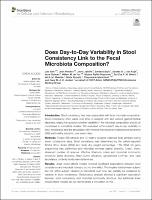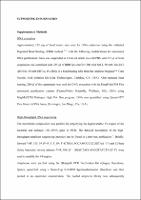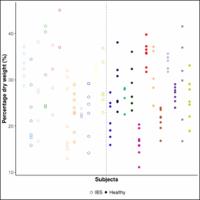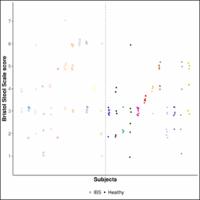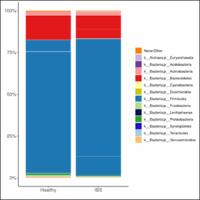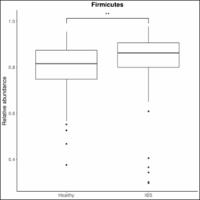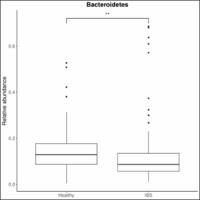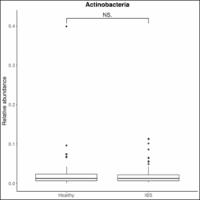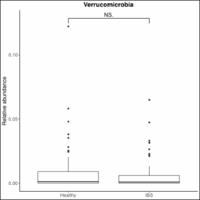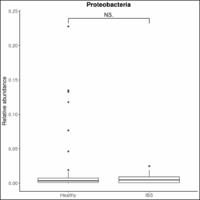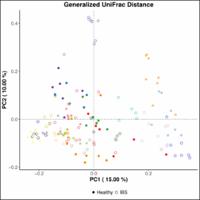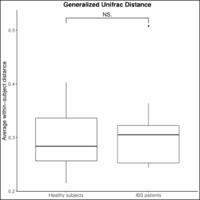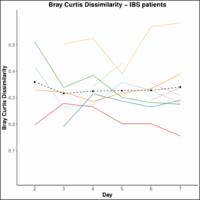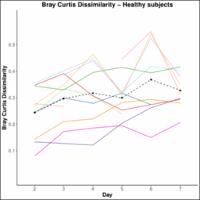| dc.contributor | Vall d'Hebron Barcelona Hospital Campus |
| dc.contributor.author | Vork, Lisa |
| dc.contributor.author | Penders, John |
| dc.contributor.author | Jalanka, Jonna |
| dc.contributor.author | Bojic, Svetlana |
| dc.contributor.author | van Kuijk, Sander M. J. |
| dc.contributor.author | Salonen, Anne |
| dc.contributor.author | Pozuelo Del Rio, Marta |
| dc.contributor.author | Manichanh, Chaysavanh |
| dc.date.accessioned | 2022-05-02T13:01:14Z |
| dc.date.available | 2022-05-02T13:01:14Z |
| dc.date.issued | 2021-07 |
| dc.identifier.citation | Vork L, Penders J, Jalanka J, Bojic S, van Kuijk SMJ, Salonen A, et al. Does Day-to-Day Variability in Stool Consistency Link to the Fecal Microbiota Composition? Front Cell Infect Microbiol. 2021 Jul;11:639667. |
| dc.identifier.issn | 2235-2988 |
| dc.identifier.uri | https://hdl.handle.net/11351/7444 |
| dc.description | Fecal microbiota; Intestinal microbiome; Stool consistency |
| dc.description.abstract | Introduction: Stool consistency has been associated with fecal microbial composition. Stool consistency often varies over time, in subjects with and without gastrointestinal disorders, raising the question whether variability in the microbial composition should be considered in microbiota studies. We evaluated within-subject day-to-day variability in stool consistency and the association with the fecal microbiota in irritable bowel syndrome (IBS) and healthy subjects, over seven days.
Methods: Twelve IBS patients and 12 healthy subjects collected fecal samples during seven consecutive days. Stool consistency was determined by the patient-reported Bristol Stool Scale (BSS) and fecal dry weight percentage. 16S rRNA V4 gene sequencing was performed and microbial richness (alpha diversity; Chao1 index, observed number of species, effective Shannon index) and microbial community structure (beta diversity; Bray-Curtis distance, generalized UniFrac, and taxa abundance on family level) were determined.
Results: Linear mixed-effects models showed significant associations between stool consistency and microbial richness, but no time effect. This implies that between-subject but not within-subject variation in microbiota over time can partially be explained by variation in stool consistency. Redundancy analysis showed a significant association between stool consistency and microbial community structure, but additional linear mixed-effects models did not demonstrate a time effect on this.
Conclusion: This study supports an association between stool consistency and fecal microbiota, but no effect of day-to-day fluctuations in stool consistency within seven days. This consolidates the importance of considering stool consistency in gut microbiota research, though confirms the validity of single fecal sampling to represent an individual’s microbiota at a given time point. NCT00775060. |
| dc.language.iso | eng |
| dc.publisher | Frontiers Media |
| dc.relation.ispartofseries | Frontiers in cellular and infection microbiology;11 |
| dc.rights | Attribution 4.0 International |
| dc.rights.uri | http://creativecommons.org/licenses/by/4.0/ |
| dc.source | Scientia |
| dc.subject | Còlon irritable |
| dc.subject | Intestins - Microbiologia |
| dc.subject.mesh | Gastrointestinal Microbiome |
| dc.subject.mesh | Irritable Bowel Syndrome |
| dc.title | Does Day-to-Day Variability in Stool Consistency Link to the Fecal Microbiota Composition? |
| dc.type | info:eu-repo/semantics/article |
| dc.identifier.doi | 10.3389/fcimb.2021.639667 |
| dc.subject.decs | microbiota intestinal |
| dc.subject.decs | síndrome del colon irritable |
| dc.relation.publishversion | https://doi.org/10.3389/fcimb.2021.639667 |
| dc.type.version | info:eu-repo/semantics/publishedVersion |
| dc.audience | Professionals |
| dc.contributor.organismes | Institut Català de la Salut |
| dc.contributor.authoraffiliation | [Vork L] Division of Gastroenterology-Hepatology, Department of Internal Medicine, NUTRIM School of Nutrition and Translational Research in Metabolism, Maastricht University Medical Center+, Maastricht, Netherlands. [Penders J] Department of Medical Microbiology, NUTRIM School of Nutrition and Translational Research in Metabolism, Maastricht University Medical Center+, Maastricht, Netherlands. [Jalanka J, Salonen A] Human Microbiome Research Program, Faculty of Medicine, University of Helsinki, Helsinki, Finland. [Bojic S] Department of Biochemical Engineering and Biotechnology, Faculty of Technology and Metallurgy, University of Belgrade, Belgrade, Serbia. [van Kuijk SMJ] Clinical Epidemiology and Medical Technology Assessment, Maastricht University Medical Center+, Maastricht, Netherlands. [Pozuelo M] Unitat de Recerca en l’Aparell Digestiu, Vall d’Hebron Hospital Universitari, Barcelona, Spain. [Manichanh C] Unitat de Recerca en l’Aparell Digestiu, Vall d’Hebron Hospital Universitari, Barcelona, Spain. Centro de Investigación Biomédica en Red Enfermedades Hepáticas y Digestivas (CIBERehd), Instituto de Salud Carlos III, Madrid, Spain |
| dc.identifier.pmid | 34458156 |
| dc.identifier.wos | 000680709300001 |
| dc.rights.accessrights | info:eu-repo/semantics/openAccess |

